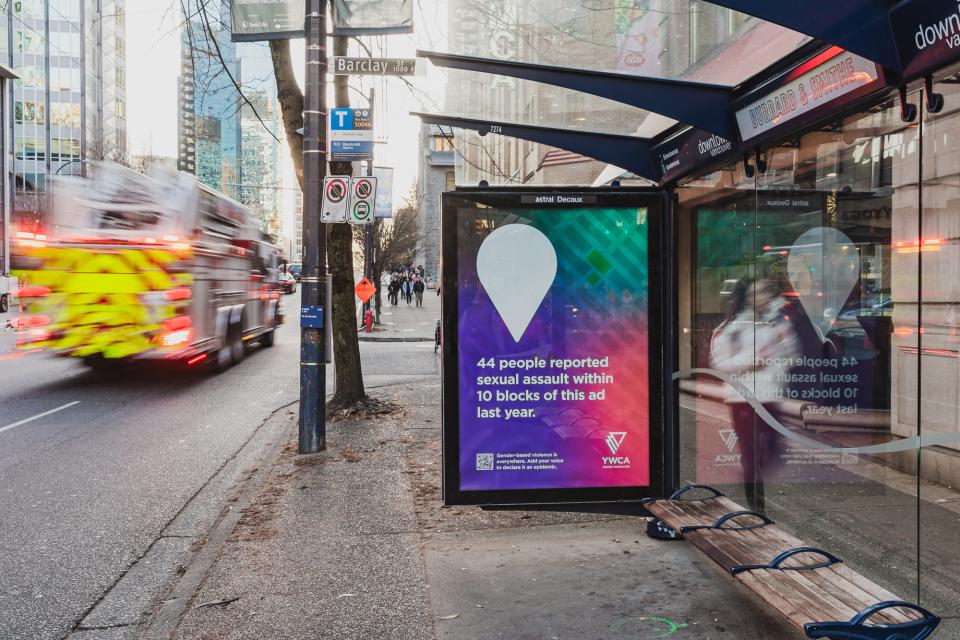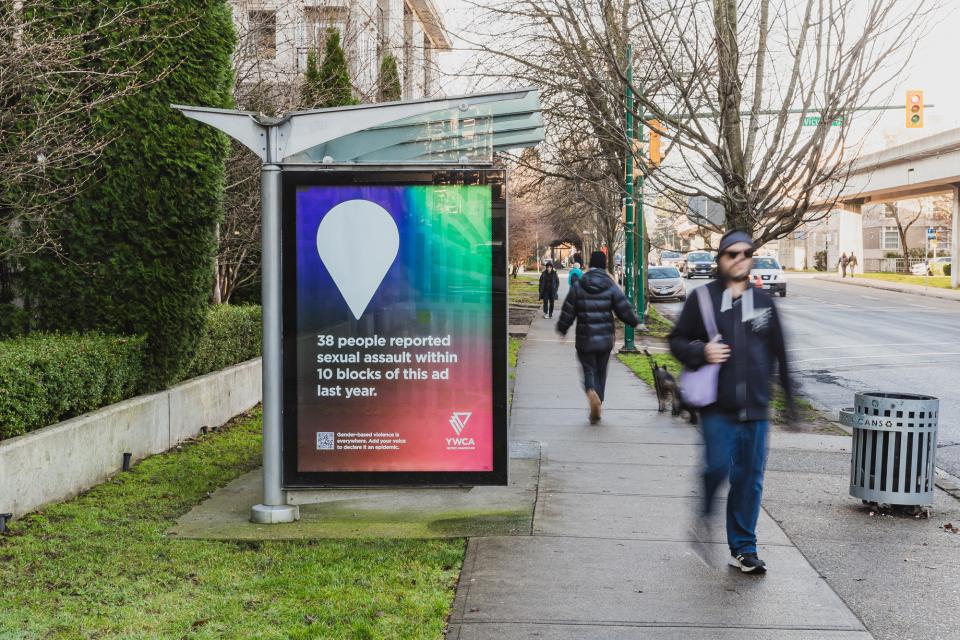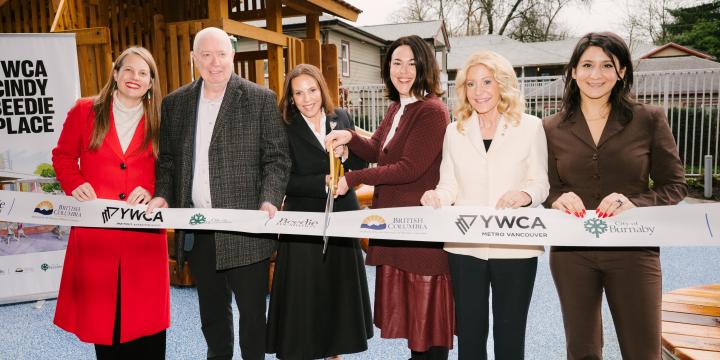
‘Close to Home’ Campaign Urges for Gender-Based Violence to Be Declared an Epidemic in BC
News release: YWCA launches new campaign during 16 Days of Activism Against Gender-Based Violence, revealing the incidence of sexual assaults within 10 blocks of each ad.
Vancouver, B.C, November 25th, 2024 – To underscore the alarming prevalence of gender-based violence in our communities, YWCA Metro Vancouver has launched a powerful new campaign titled “Close to Home” to mark 16 Days of Activism against Gender-Based Violence. This campaign uses bus shelter ads to visually represent the number of reported sexual assault cases within a mere 10-block radius of each ad. This campaign is a part of the YWCA’s advocacy efforts to urge the BC provincial government to declare gender-based violence an epidemic.

Gender-based violence (GBV) is a serious and pervasive epidemic affecting women and gender-diverse people across British Columbia. Rooted in harmful gender norms and power imbalances, this form of violence is closer to home than you might think.
Gender-based violence includes all forms of gendered violence, both within and outside of intimate relationships. It can include emotional, physical, financial and all forms of sexual violence, sexual harassment and online gendered harassment. Anyone can experience gender-based violence, but women, girls and gender diverse people are at far greater risk. A staggering 48% of BC women have experienced some form of intimate partner violence since age 15. For Indigenous women and individuals in the 2SLGBTQIA+ community, that figure is higher, reaching 64% and 72%, respectively.
BC has the second highest rate of gender-based violence of any province in Canada. The YWCA’s bus shelter ads will highlight the reported cases of sexual assaults in five Vancouver neighborhoods, but the digital component of the campaign will highlight the reported cases in communities across the province.
“The harsh reality of gender-based violence is that it’s among our communities and closer to home than we may want to believe,” says YWCA Metro Vancouver's CEO, Erin Seeley. “This campaign paints the picture of how critical this issue is in our community and why we need to advocate for coordinated action to end gender-based violence in British Columbia.”

Recognizing Gender-Based Violence as an Epidemic
Gender-based violence is a serious social, economic and public health crisis. Declaring it an epidemic will raise public awareness, improve data collection and research, increase support for survivors and prevention efforts, and potentially lead to long-term behavioural and societal changes. To address this urgent issue, the YWCA, in partnership with a coalition of anti-violence organizations, academics, business leaders, community advocates and educators, is launching an initiative to declare GBV an epidemic in BC.
To date, only Nova Scotia has officially declared gender-based violence an epidemic. However, several municipalities across the country, including many in Ontario, have taken this step.
“We’re urging the BC government to declare gender-based violence an epidemic,” says Lisa Rupert, YWCA Metro Vancouver’s VP of Housing and Violence Prevention. “To address this epidemic, we are asking the province to follow a whole of government approach to gender-based violence focusing on prevention and support for survivors, to commission a coroner’s review of deaths caused by gender-based violence and significantly increase investments in housing for those who have experienced intimate partner violence.”
The YWCA urges British Columbians to add their voices to declare gender-based violence an epidemic by signing an open letter to the premier. To learn more about gender-based violence and sign the open letter, go to ywcavan.org/hiddenepidemic.
About YWCA Metro Vancouver
YWCA Metro Vancouver advances gender equity alongside women, families, Two-Spirit and gender-diverse people through advocacy and integrated services that help support personal, collective and economic well-being.
Media contact:
Marina Arnaud, Senior Manager, Marketing Communications
YWCA Metro Vancouver

